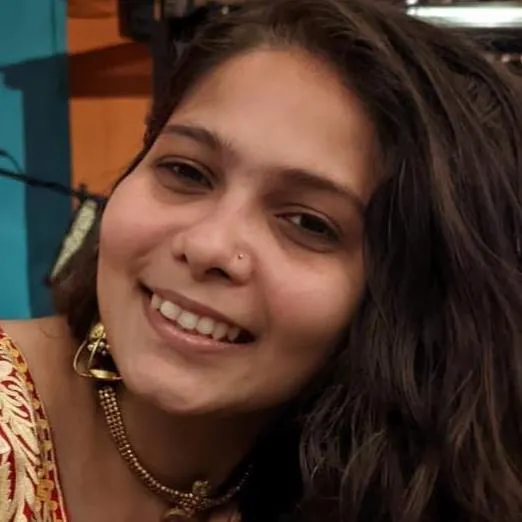
Sabika is a performance poet and co-editor of the Bystander Anthology and Senior Editor of the SAAG Anthology. She is a storyteller, facilitator, translator, and organizer. Sabika supports artist communities across the globe in the arts, training, and design.
Who has shaped the way you show up today as an artist and/or activist?
Sabika: The women who came before me have shaped how I show up today as an artist and activist. I have learnt my mother tongue from the revolutions my mother and grandmother have helmed. The language of justice and the will to articulate it, is all a legacy handed down to us. In a time when my people and those marginalized around the world are being silenced and pushed against the wall, my pen seem to only write freedom, justice and peace. Nothing more. As a Muslim woman and artist in India right now, there is no other choice but to show up, speak up because no one will do that for us.
What is the power of connecting artists working at the intersection of arts and social movements across different geographies?
The biggest misfortune for the marginalized has always been the absolute lack of allyship or true solidarity. When we deeply listen across movements we see so many similarities in which people show up. It is this cross border solidarity that gives us ease, friendship, makes us learn different methods of resistance, opens spaces for joy, grieving, creating, supporting, care-giving and also refuge. When artists across geographies and contexts connect, they are a force to reckon with.
How do you see art with relation to social change and movements, toward gender justice and decolonization?
The oppressor is boring and non-innovative, it uses the oldest tools in the books of injustice, but the artists show innovation in their resistance, louder, when together. I feel that as an artist my job is to archive the struggles of my community and people, because if I don’t who will. All forms of media are sold out and work against us. The second job is to ask questions, to raise issues and to speak up- as loudly with my pen and voice as possible. The most important, however, to have the ability to dream and create an alternative to the existing scenario. An artist ensures that hope and dreams are alive, they defend the rights for the oppressed to be able to draw skies and imagine a future.
